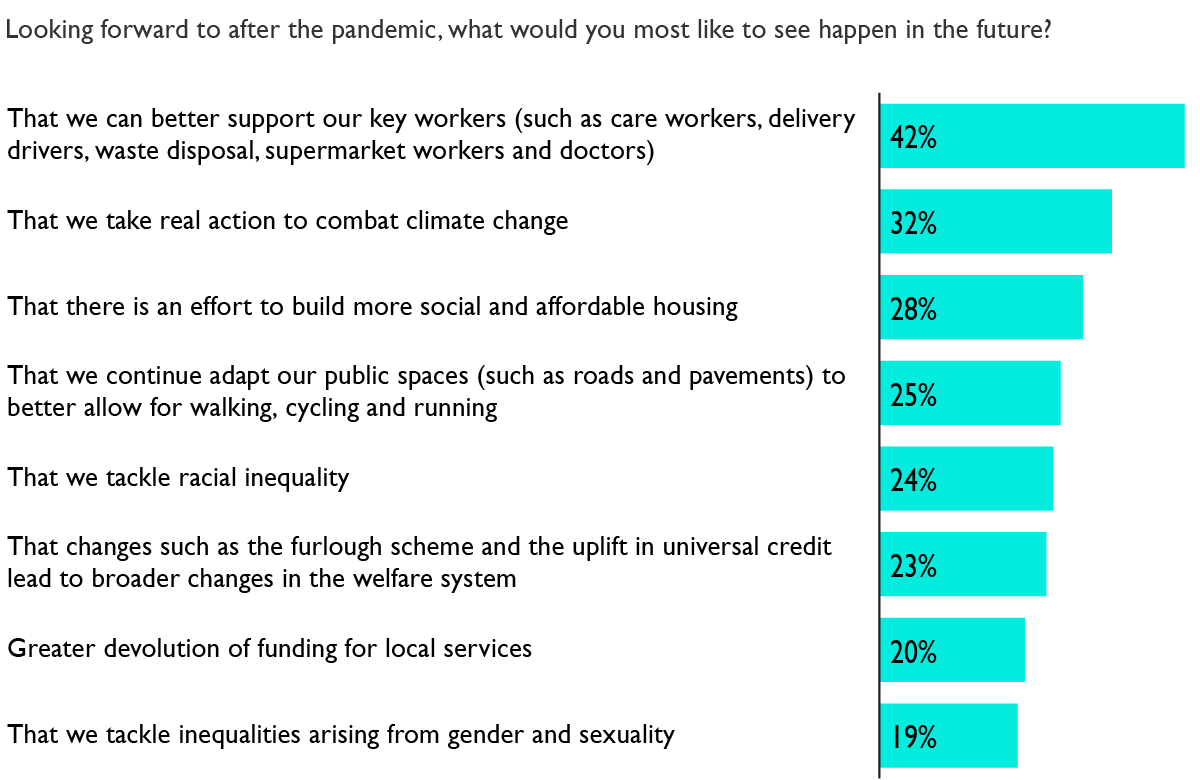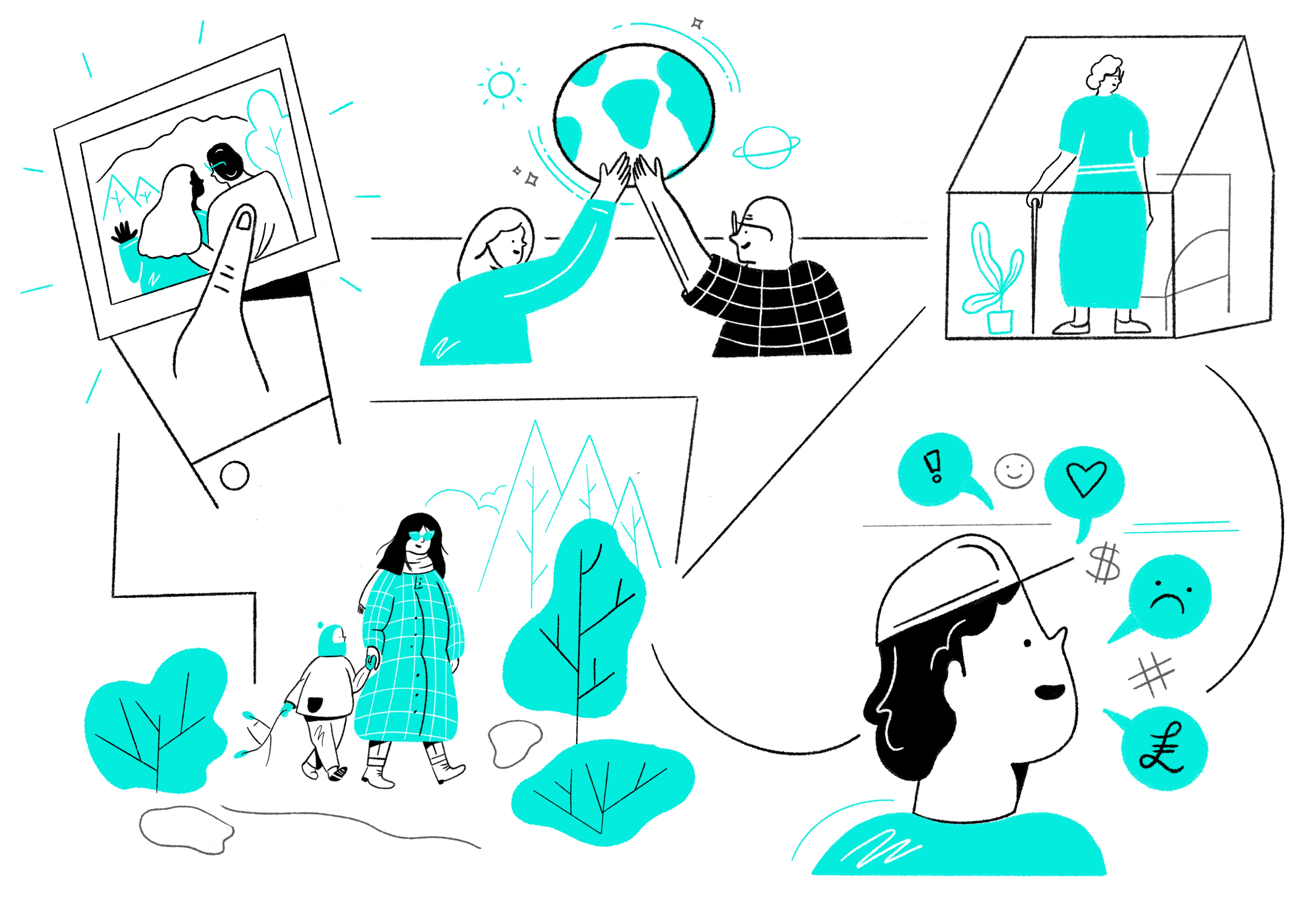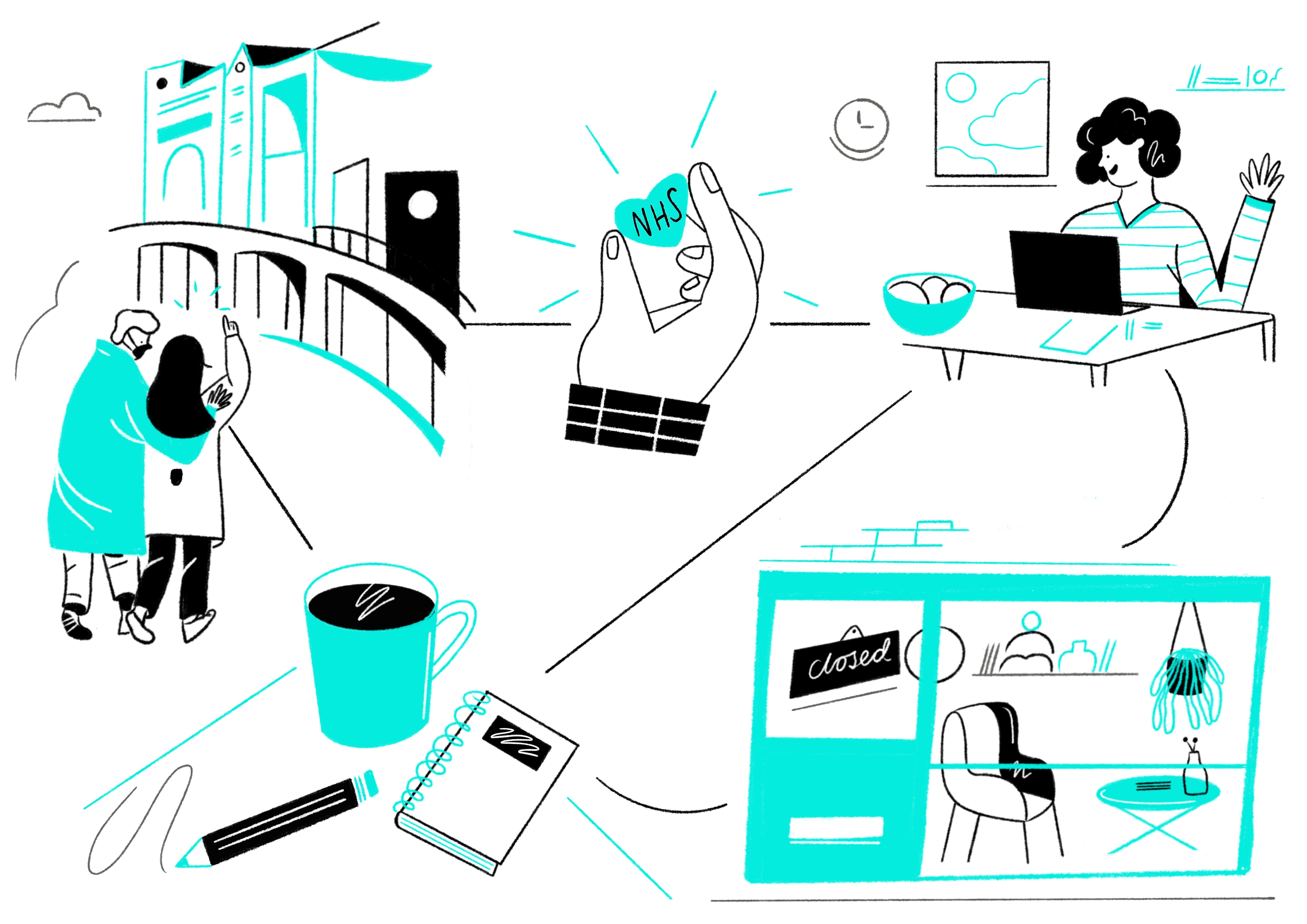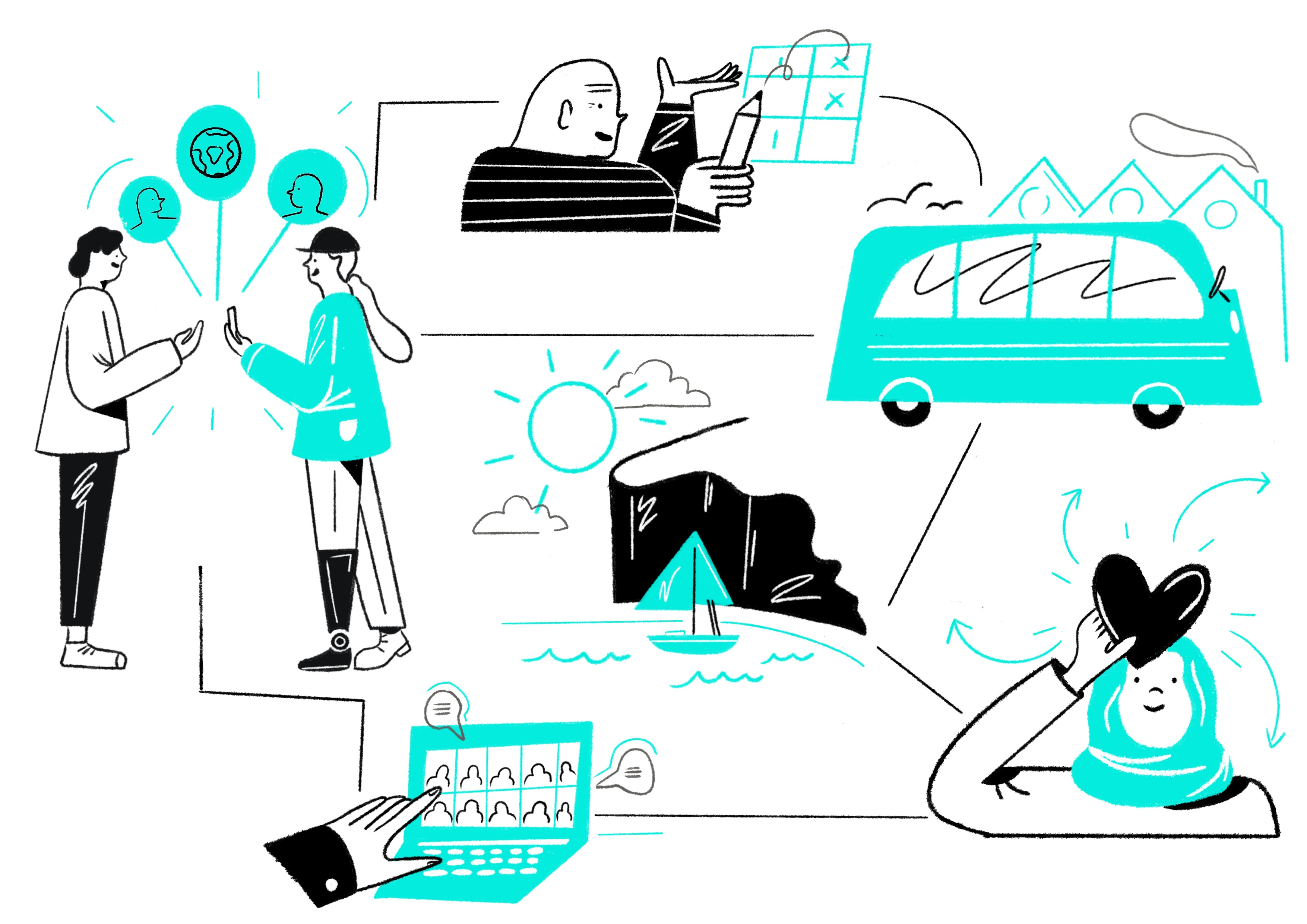Different crises
Where do you see compounding crises and how are these playing out in different communities?
Where are you seeing energy for change emerge? How can you add to it?
Any crisis disrupts the status quo and change becomes more likely. Indeed, a disaster response is often characterised by a surge of solidarity and action towards a compelling shared mission and purpose.
This release of our individual and collective energy and assets fuels the possibility of change, a counterforce to the desire to revert back to the way things were before.

I’ve been proud of creating community in the streets. We’re helping each other more, helping elderly neighbours do the gardening, helping a family do their shopping every week. In the first pandemic we helped cook some meals for NHS workers at the local hospital.
“I’m always in awe of the fact that I’ll be completely depleted and then I’ll go into a community, to community meetings and the energy is just phenomenal. People are saying, we’re doing this, and we’ve delivered 100 meals to this many people, you know, who am I to sit and say, ‘I'm depleted’... it’s that energy that gives you the mandate to turn around and say, ‘communities are just getting on with it. And there are some amazing GPs on the ground doing phenomenal things’.”
Samira Ben Omar, co-founder Community Voice, North West London
“The national awakening to the value that technology brings to help people communicate and stay together...has transformed our world. It’s given us an opportunity to bring, alongside concepts of care and support, the whole business of sustainability, climate change and living lives that are going to make the environment a much better place. I think if we can bring those things together that will also rub off on beginning to transform the way we look at housing. If we don’t seize that opportunity we’ll miss a massive trick. If we don’t include housing and neighbourhoods in terms of design and living as an integral way of part of understanding public health and social care, we’ll go off having conversations that lead to a huge disconnect.”
Stephen Sloss, CEO of Salvere Social Enterprise CIC
“I've helped to set up a bike delivery co-op. The idea is to not just to support charities and do good community work with food banks and so on which we do every day of the week, it's also to build a model, an alternative to the gig economy. It's about giving living wage employment with good conditions, to young people who have no jobs.”
Nick Dixon, senior advisor in person and community centred approaches, Greater Manchester
“You couldn’t have just started a community shop overnight in a community that has no sense of community... Learning from the pandemic, we really need to be thinking about community and anchor institutions. In some areas, people think of them as being the council because they do so much more than the local authorities do.”
Isla McCulloch, chairperson of the community greengrocer Dig In, Edinburgh
Our findings show that people most want to see better support for our key workers (42%), real action to combat climate change (32%) and more affordable housing (28%).




“In disaster people come together, and though some fear this gathering as a mob, many cherish it as an experience of civil society that is close enough to paradise. This is a paradise of rising to the occasion that points out by contrast how the rest of the time most of us fall down from the heights of possibility, down into diminished selves and dismal societies. Others recognise it, grasp it, and make something of it, and long-term social and political transformations, both good and bad, arise from the wreckage.”
Rebecca Solnit, A Paradise Built in Hell (2010)
“Struggle as we may, “fixing” will never make sense out of change. The only way to make sense out of change is to plunge into it, move with it, and join the dance.”
Alan W Watts, Wisdom of Insecurity (1951)
“In a crisis, you should always deploy an innovation team alongside the business recovery team… to capture the novel practice”
Dave Snowden, Founder, Cognitive Edge
“Productivity 2.0 isn’t about scale, huge IT investment, or automation; it’s about human beings working together to solve the problems of other human beings.”
John Seddon, Beyond Command and Control
Where do you see compounding crises and how are these playing out in different communities?
Where and how has the pandemic exacerbated existing issues?
Is it a concern that so much funding has been found by government - yet universal credit has only been temporarily uplifted by £20 and it took a sustained campaign to extend free school meals?
Are there any specific temporary measures you’ve seen put in place that would cause you concern if they became the norm?
How are you finding resilience through transition to cope with discomfort and uncertainty?
Where are you seeing energy for change emerge? How can you add to it?